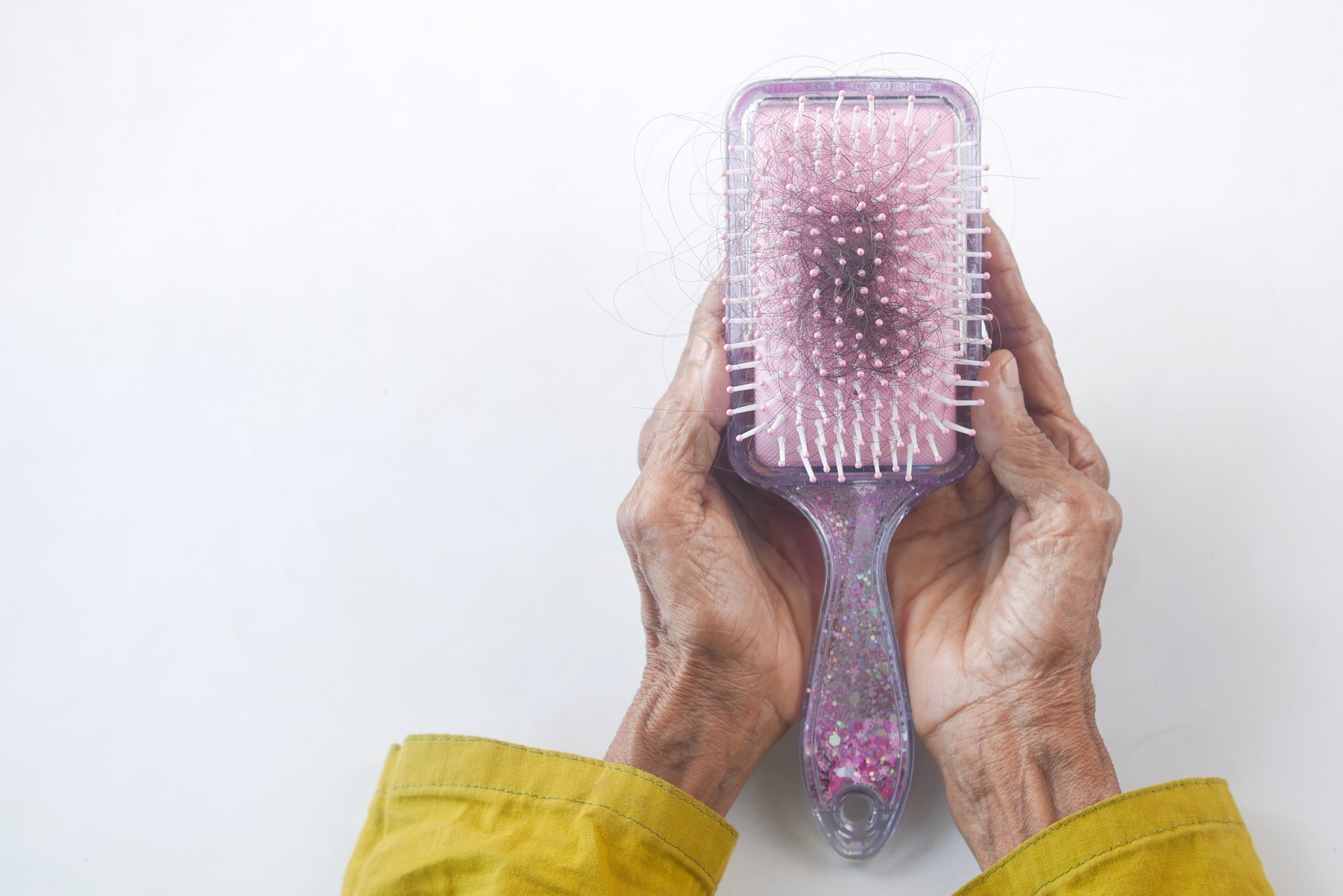
There is a strong connection between hair loss and overall health. Hair loss can be a symptom or an indication of underlying health conditions affecting people of all genders and ages. But while many of us may view hair loss as an entirely cosmetic concern, it can sometimes indicate underlying health problems. Hair loss can be connected to a range of health problems; thus, addressing the cause of hair loss is essential to promote healthy hair growth and identify and treat any underlying health issues. This guide will explore the critical connection between hair loss and overall health and provide treatment options.
Insufficient Nutrition
Inadequate intake of crucial nutrients can contribute to hair loss. For example, deficiencies in vitamins (such as vitamin D, vitamin E, and biotin), minerals (such as iron and zinc), and proteins can affect hair growth and lead to increased hair shedding.
Hormonal Imbalances
Hormonal changes or imbalances can contribute to hair loss. Conditions such as polycystic ovary syndrome (PCOS), thyroid disorders, and hormonal fluctuations after childbirth can lead to hair thinning and excessive shedding.
Aging
The aging process can contribute to hair loss. An American Academy of Dermatology Association describe that age-related hair fall happens because the hair follicle ultimately slows down- and when shedding occurs faster than fresh hair can grow, you will begin to observe the first signs of hair fall.

Stress and Emotional Well-Being
Psychological stress, anxiety, and emotional trauma can contribute to hair loss. Chronic stress can disrupt the hair growth cycle and lead to telogen effluvium, a condition characterized by excessive shedding. Hair loss can also negatively impact a person’s self-esteem, confidence, and emotional well-being.
Systemic Illnesses and Medical Conditions
In the worst cases, certain medical and systemic illnesses can cause hair loss and baldness. These include autoimmune diseases (such as alopecia areata), scalp infections, hormonal disorders, nutritional deficiencies, and chronic illnesses like diabetes or lupus.
Medications and Treatments
Certain medications and medical treatments can cause hair loss as a side effect. Chemotherapy, radiation therapy, hormonal medications, anticoagulants, and some antidepressants are examples of medications that can lead to temporary or permanent hair loss.
In some cases, hair loss can serve as an indicator of an underlying health issue. Sudden or severe hair loss may prompt individuals to seek medical attention, leading to the diagnosis of an underlying condition that may require treatment.
Treatment Options for Hair Loss
The treatment options for hair loss depend on the underlying cause and the specific type of hair loss. Here are some treatment approaches:
Medications:
-
Minoxidil: It is an FDA-approved over-the-counter topical medication that is applied to the scalp. It is available in various strengths and can be used by both men and women to slow down hair loss and promote hair regrowth.
-
Finasteride: This prescription medication is basically applied for male pattern baldness. It works by inhibiting the conversion of testosterone to dihydrotestosterone (DHT), which is a hormone associated with hair loss.
-
Other Medications: Other oral options such as spironolactone (Carospir, Aldactone) and oral dutasteride (Avodart) can be used to treat certain types of hair loss, such as alopecia areata or scalp inflammation. However, we always suggest our readers/ consumers to consult their doctor before using any health supplement with any other medications they are currently taking.
Hair Transplantation:
Hair transplantation involves removing healthy hair follicles from one part of the scalp (usually the back or sides) and transplanting them to areas with thinning or no hair. It is an effective option for individuals with pattern baldness.
Laser Therapy:
Low-level laser therapy (LLLT), known as cold laser therapy and red light therapy- irradiates photons toward scalp tissues. These photons are immersed by weak cells to stimulate hair follicles and promote hair growth. It can be administered through handheld devices or in-office treatments.
Platelet-Rich Plasma (PRP) Therapy:
PRP therapy requires injecting platelet-rich plasma derived from the patient’s blood into the scalp. PRP injections trigger hair growth and maintain it by enlarging the blood supply to the hair follicle and the hair shaft’s thickness.
The Bottom Line:
Hair loss can be associated with underlying health conditions; it can also be influenced by genetic factors and natural aging processes. If you’re experiencing significant hair loss or have concerns about your hair, it’s advisable to consult a healthcare professional who can evaluate your overall health, identify any underlying causes, and recommend appropriate treatment options.
Individuals who are looking for a permanent solution can get the best hair transplant in India. The procedure is considered as safe and provides natural-looking results. Also, you can choose India for the best medical facilities, techniques, and advanced technologies. India is a hub for hair transplant clinics and leading expert surgeons providing excellent treatments and outcomes.
